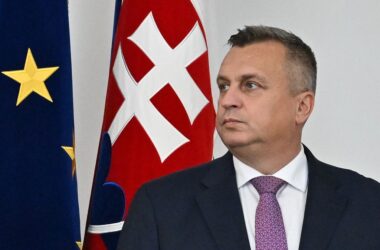France’s new Prime Minister, François Bayrou, is tackling his first significant challenge in Parliament this week as his government struggles with political instability and lacks a majority.
Bayrou, who took office just a month ago after being appointed by President Emmanuel Macron, is delivering a general policy speech to outline his priorities, which include urgent budget decisions.
The PM is under pressure to pass a 2025 budget bill. Following the collapse of the previous government, an emergency law was enacted to allow the state to collect taxes from January 1st, cover essential expenses, and prevent a government shutdown. However, only a full budget would reduce France’s deficit and secure funding for critical areas like defense amidst the ongoing war in Ukraine and financial support for farmers.
Financial markets, credit rating agencies, and the European Commission are all urging France to comply with EU debt limits and avoid rising borrowing costs, which could destabilize the eurozone. France’s deficit is projected to reach 6% of its GDP in 2024, with Finance Minister Éric Lombard stating last week that the government aims to reduce this to between 5% and 5.5% this year.
Bayrou, who described the challenges he faces as akin to a “Himalaya climb,” emphasized his awareness of the situation’s gravity. His Cabinet depends on a delicate alliance between Macron’s centrist allies and the conservative Republicans. However, this coalition lacks a parliamentary majority, and the government remains vulnerable to further opposition. The previous administration fell after just three months due to a budget dispute, driven by left-wing and right-wing opposition.
To prevent a repeat of this scenario, Bayrou seeks a nonaggression pact with the Socialists, hoping to secure their support and avoid future motions to topple the government. The Socialists have expressed openness to talks, provided they include discussions on the pension reform, a controversial policy passed two years ago under Macron.
Despite this, the threat of a no-confidence vote looms. The far-left France Unbowed party has already declared its intent to file a motion against the government, although its success remains unlikely, as the right-wing is currently unwilling to back it.
Looking ahead, another vote could arise during the budget debate, with uncertain results. Macron’s pension reform, which raised the retirement age from 62 to 64 and requires 43 years of work for a full pension, sparked widespread protests in 2023 and continues to stir political tensions.
The Socialists are now calling on Bayrou to announce a suspension of the reform to allow time for renegotiation, potentially revising the retirement age and adding provisions for workers in physically demanding jobs or those with long careers. However, such a suspension would likely provoke anger on the political right, further destabilizing Bayrou’s fragile government.
Conservative Senate President Gérard Larcher has warned that suspending or repealing the pension reform would come at a steep financial cost, estimating it would result in a €3.4 billion loss in 2025 and nearly €16 billion by 2032.



